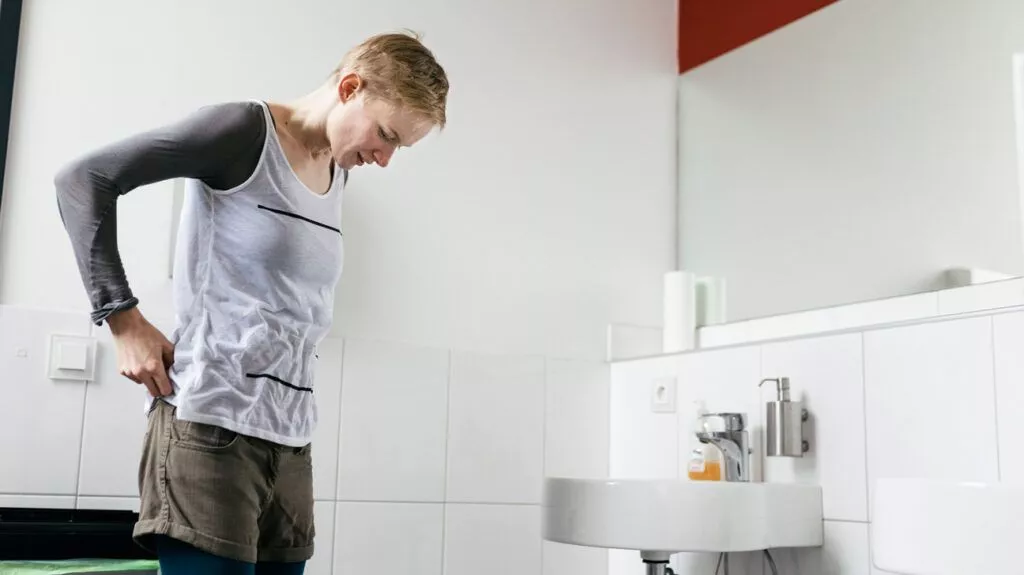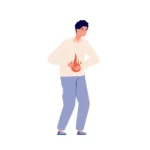Constipation
Contents
Constipation is one of the most common stomach problems, like diarrhea, worldwide.
Research in India suggests that 22% of the adult population suffers from this condition while 13% has severe constipation.
Constipation is that condition, In which our poop becomes hard, lumpy, and dry, which creates stiffness or pain while leaving.
It can be Acute and Chronic.
- Acute constipation may cause closure of the intestine, which may even require surgery (1).
- Common causes of chronic constipation include lack of fiber and lack of liquids.
Epidemiological studies have shown that a higher prevalence of chronic constipation is associated with increased age (2).

Causes of Constipation
There are common causes of constipation. which include:
Lack of fiber – High dietary fiber, which promotes regular stool, especially works well when a person is properly hydrated.
Lack of physical activity – People who exercise regularly are generally less developed to constipation.
A 2013 study found that more enhancement in physical activity can help improve constipation in adults.
Certain Medicines– Pain relievers like opiates, Antispasmodics like dicyclomine, Tricyclic antidepressants like amitriptyline, and many medicines (3).
Lack of water – Water plays an essential role in keeping stools soft, and preventing stool from drying, and hard.
Other causes are:
- Pregnancy
- Aging
- Irritable bowel syndrome (IBS)
- Travelling causes a change in routine, which affects the digestive system.
- Intestinal blockage
- Chemotherapy, and pain relief medicines can promote constipation.
Delayed emptying of the colon from pelvic floor disorders, especially in women, and colon surgery (4).
Constipation During Pregnancy
However, it is more common in women. moreover, severe constipation is more clearly visible in older women as compared to men (5).
According to a source, 40% of pregnant women experience constipation.
During pregnancy, hormone changes cause relaxation of your body muscles including reduced intestinal movement, which leads to constipation.
However, it is more seen in the last months, which increases progesterone hormone and delayed intestinal tempting, because of mechanical pressure.
Reports show that women are more likely to suffer from constipation during the premenopausal time, due to which changes in hormones and emotions occur (6).
Learn More About – Obesity, And Pregnancy.
Symptoms of Constipation
Its symptoms may include.
- Difficulty in passing stool
- Stools that are hard, lumpy, and dry
- Stomach Pain
- Applying more pressure while pouring
- Bloated feeling
- Nausea
- Loss of appetite
If you see problems like blood in the stool or constant pain in the stomach during constipation, then it can be a sign of a medical problem. talk to the doctor.
Complications
Yes, long-time constipation can lead to other various health problems, but how?
It’s slowly damaging your internal part, which causes other health problems including:
- Infection, that affects the colon wall, becomes trapped, which leads to the infection condition diverticulitis.
- Fecal impaction, a condition, was too much stool in the rectum.
- Piles
- Fissures, this condition may occur when you pass hard or large stools.
- Bowel incontinence (the leakage of liquid stools).
How Doctor Diagnose?
If you have frequent or troubled constipation, then you must talk to your healthcare provider. many tests can diagnose severe constipation.
Doctors may also ask about your medical history, lifestyle habits, and routine Physical examination to allow the doctor to define your type.
Other tests are available. which include:
- Blood tests
- Imaging test
- X-ray
- Colonoscopy, In this your internal view of your colon is checked with a scope.
Treatment of Constipation

There are many medicines available, whether it is homeopathy or allopathy, also many more ayurvedic and home remedies are available.
Here is some recommendations, that you should take while constipation, it will help you.
Natural Ways
- Drink lots of water
- Promote exercise in your life
- Decide on your departure time
- Reduce intake of this food including meat, milk, cheese, and processed foods
- Eat fiber-related food including:
- Vegetables
- Whole grains
- Nuts
- Fruits
- Chickpeas, and other legumes
- Avoiding holding stool
- Take herbal remedies, which are an excellent way to get relief from constipation.
Medicines
- Medicines like laxatives are a type of medicine that can treat constipation.
- Taking over-the-counter medicines, like Metamucil, and Benefiber, but only taken under a doctor’s guidance.
- Homeopathy and allopathy are also avaliable.
How To Prevent It?
You just have to these things in mind for prevention, they include:
- Drink enough water around 2 to 3L a day, and pregnant, and breastfeeding women need more water approx 2.5 to 3L a day.
- Travellers should also drink enough water, but clear water, otherwise may diarrhea happen.
- Eat high-fiber fruits, which promote a healthy gut.
- Avoid excessive caffeine, alcohol, and dehydration.
- At least do 1-hour daily exercise
- Do yoga including cobra, and bow.
Some studies have shown that adding probiotics to your diet can help this illness, just remember to drink plenty of water with them.
Learn More About – Benefits Of Drinking Enough Water, and Side Effects.
When We Need a Doctor?
It has been shown that people with chronic constipation, especially those with difficulty with bowel movement, have an important psychological disorder (7).
You should talk to the doctor if you have severe pain, blood in your stool, and constipation that lasts for more than 2 weeks.
This can often be due to diet and poor lifestyle.
For other symptoms, if this is seen, consult the doctor:
- Without any reason suddenly start constipation
- Difficulty in passing gas
- Fever
- Vomitting
- Blood in stool
- Frequent pain in the stomach
Down Line
However, it is more common in women than in men. moreover, severe constipation is more clearly visible in older women as compared to men.
During pregnancy, hormone changes cause the relaxation of your body muscles including decreased intestinal movement, which leads to constipation.




I additionally believe that mesothelioma cancer is a rare form of cancer that is normally found in those people previously exposed to asbestos. Cancerous cellular material form while in the mesothelium, which is a safety lining which covers almost all of the body’s bodily organs. These cells typically form while in the lining from the lungs, stomach, or the sac which actually encircles the heart. Thanks for expressing your ideas.
Thank you,and please share as far as possible, read other post, and thanks once again.